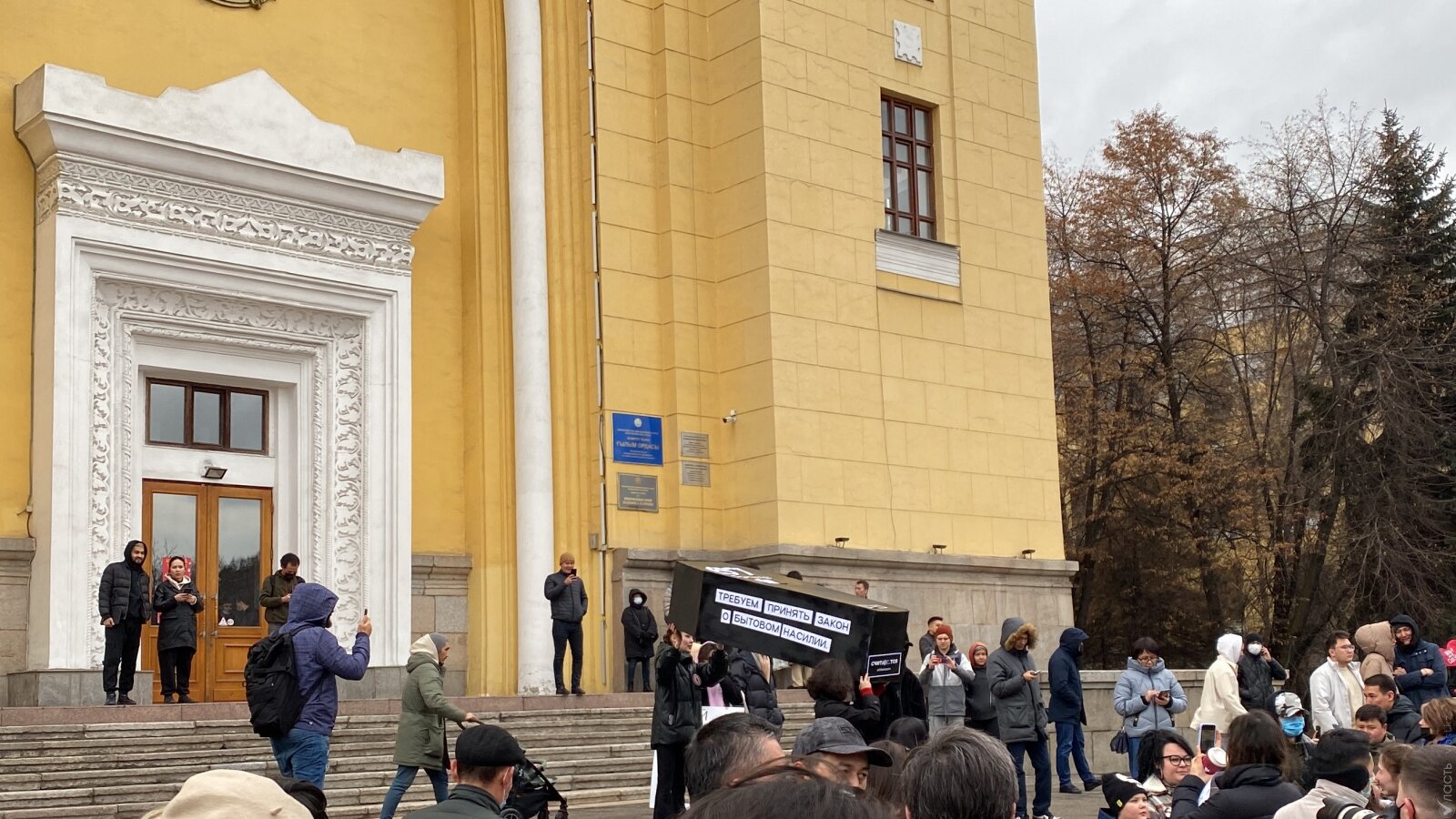Most of this year’s 100,000 reports of domestic violence filed with the police were not investigated. The victims, in most cases, refused to file a suit and the aggressors escaped responsibility. Women have few chances to defend themselves from domestic violence despite the plans to increase the severity of the penalties for the aggressors. Why do these government measures to resolve the issue of domestic violence fail?
On September 1, during his address to the nation, Kazakhstan’s President Kassym-Jomart Tokayev talked about the necessity to criminalize domestic violence, which had been de-criminalized in 2017. Then, the articles on “assault and bodily harm” and “battery” were transfered from the Criminal to the Civil Code. Domestic violence had been most frequently defined through these provisions.
After Tokayev’s statement, the ministry of interior specified that the detention term for those accused of domestic violence would increase from five to 25 days, that the administrative warning against the aggressor would be turned into a period of community service, and that the court reconciliation would become easier for the victims. The promised “harsher punishment” turned out to be much milder, continuing the tradition of a mock fight against domestic violence in Kazakhstan.
In 2020, a group of conservative activists successfully lobbied to stop the public discussion on a draft bill “On combating domestic violence.” They argued that protecting women and children from aggressors was equivalent to destroying family values. Under pressure, the government caved to this position.
Women who are subject to domestic violence live in a state of constant stress. In addition, the victims are often financially dependent on the aggressor, as they are raising children and cannot leave the household for fear of being shamed and blamed by friends and relatives. Would someone in these conditions turn to the police, knowing that the offenders would still come back home after a few days? Moreover, he would return further aggravated for having served in pre-trial detention or having been forced to clean the streets.
Beating your partner and children is, after all, less shameful than being punished for it.
Most women end up not filing a complaint against their partner. Those who make it to the police station are still likely to withdraw their claim after a few days or reconcile in court. They would then go back to the physical and psychological abuse in their household.
Victims have but a few safe havens to go to. Only 57 crisis centers are open in Kazakhstan and these are not spread out evenly across the country. And victim-blaming is still widespread in society: she provoked, she didn’t raise her children well, she missed a spot cleaning up.
Women and children are forced to be patient and endure. They are waiting for the authorities to stop pretending and toughen punishment for domestic violence.
Поддержите журналистику, которой доверяют.








